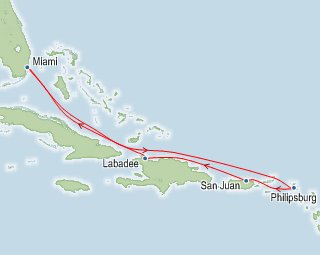
COURSE CREDITS & HOURS
AMA PRA Category 1 Credits™COURSE FEESTARGET AUDIENCE
PROGRAM PURPOSE
To provide the physician with a working knowledge of clinically relevant and up-to-date topics in clinical nephrology using a combined lecture and case study approach. This review will provide a practical overview of commonly encountered problems in clinical nephrology, focusing on prevention, diagnosis, and management. For each topic, nephrology essentials will be reviewed and illustrative cases explored and discussed. Participants will be invited to share their clinical experiences, concerns, and insights. Upon completion of the course, participants should have a clear understanding of the stages of chronic kidney disease and be able to enumerate the common disease entities that result in chronic disease; recognize common complications of chronic kidney disease especially anemia and abnormalities of calcium and phosphorus metabolism, their pathophysiology and management.
Participants should be familiar with the incidence of hypertension in the community, its demographics and complications, and be able to describe the approach to management of the difficult to control hypertensive patient. Participants should recognize the renal complications of diabetes mellitus, its pathophysiology and approach to management; describe the different types of kidney stones, their pathophysiology and management; recognize the significance of proteinuria, describe the common diseases associated with proteinuria, and understand the management of proteinuria.
The practitioner should also be familiar with the approach to management of the stable renal transplant patient and be able to recognize and anticipate the major complications. Finally, the practitioner should be able to describe the pathophysiology and etiology of hyponatremia in clinical practice and have an understanding of the approach to its management.
Ideal candidates for these seminars include physicians as well as other health care professionals involved in the daily management of renal patients in the office, clinic, or other outpatient setting.
Program:
| DATE | TIME | TOPIC |
|---|---|---|
| January 28 | 08:00 am-10:00 am | Chronic Kidney Disease: Its Causes and Stages |
| 10:00 am-10:15 am | Break | |
| 10:15 am-12:15 pm | Calcium and Phosphorus Abnormalities in Chronic Kidney Disease | |
| January 29 | 09:00 am-10:00 am | Anemia in Chronic Kidney Disease |
| 10:00 am-10:15 am | Break | |
| 10:15 am-12:15 pm | Hypertension: Demographics and Incidence | |
| 12:15 pm-1:15 pm | Lunch | |
| 1:15 pm-2:15 pm | Combination Therapy in Management of Hypertension Case Studies | |
| 2:15 pm-3:15 pm | Diabetic Nephropathy | |
| 3:15 pm-3:30 pm | Break | |
| 3:30 pm-4:30 pm | Kidney Stones: Its Causes and Management | |
| February 2 | 08:00 am-09:00 am | Proteinuria: Its Causes and Management |
| 09:00 am-10:00 am | Managing the Renal Transplant Patient | |
| 10:00 am-10:15 am | Break | |
| 10:15 am-11:15 am | New Approaches to the Management of Hyponatremia | |
| 11:15 am-12:15 pm | Case Studies and Course Overview |































